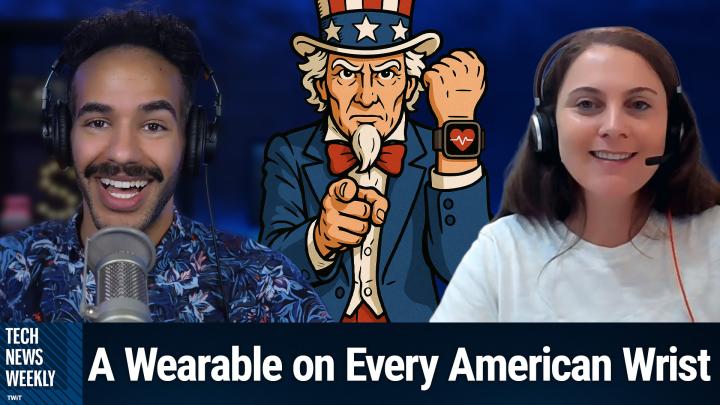Courts Drop Bombshell Rulings on AI Training: Fair Use Victory with a Piracy Twist
AI-generated, human-reviewed.
In a week that will likely be remembered as a turning point for artificial intelligence and copyright law, two federal judges handed down the first major rulings on whether AI companies can legally train their models on copyrighted content. The decisions, which WIRED's Kate Knibbs expertly unpacked on this week's Tech News Weekly, reveal a complex legal landscape where both tech companies and content creators are claiming victory—and they might both be right.
The surface story seems straightforward enough: judges in both the Meta and Anthropic cases sided with the AI companies, ruling that training large language models on copyrighted materials constitutes "fair use." One judge even went so far as to call LLM training "one of the most transformative uses we'll ever see." But dig deeper, and the celebration becomes more muted. The devil, as always, lurks in the details.
The Piracy Problem That Changes Everything
The Anthropic case took a dramatic turn when the discovery revealed the company had allegedly amassed a library of over 7 million pirated books for AI training. While Judge William Alsup agreed that AI training itself could be fair use, he drew a hard line at piracy. The case will proceed to trial on this issue alone, with potential damages that could exceed a trillion dollars.
This creates a fascinating precedent. The court essentially said: "Training AI on copyrighted content? That might be fine. But if you obtained that content illegally? That's a completely different story."
The implications ripple outward. As Knibbs pointed out during the show, Anthropic isn't the only AI company known to have used pirated materials in their training data. This ruling opens the door for a wave of similar lawsuits targeting the sourcing methods rather than the usage itself.
A Tale of Two Judges, Two Approaches
What makes these rulings particularly intriguing is how differently the two judges approached similar issues. In the Meta case, Judge Vince Chhabria seemed almost frustrated with the plaintiffs' legal strategy. Despite Meta also allegedly using pirated materials, the judge showed little interest in this angle. Instead, he laser-focused on whether the plaintiffs could prove "market harm"—that Meta's use of their books directly damaged their ability to sell them.
The judge's message was clear: if you want to win a copyright case against an AI company, you need to show concrete financial damage. He practically coached future plaintiffs from the bench, suggesting that a better-argued case might yield different results. It's rare to see a judge so explicitly telegraph what it would take to change his mind.
Everyone's a Winner (Sort Of)
In the aftermath, something unusual happened: all sides claimed victory. AI companies pointed to the fair use determinations as validation of their training methods. Artists and publishers highlighted the massive caveats and open doors for future litigation. Legal experts noted the precedent-setting nature of calling AI training "transformative."
This isn't just legal maneuvering—there's truth to all these interpretations. The rulings do establish that AI training can be fair use, a significant win for the tech industry. But they also establish that piracy is still piracy, regardless of what you do with the stolen goods, and they leave wide lanes open for future challenges.
What's Next in the AI Copyright Wars
These decisions are just the opening salvo in what promises to be a long legal battle. Several high-profile cases are still working their way through the courts, including the New York Times lawsuit against OpenAI, which features extensive documentation of the AI regurgitating Times content word-for-word. Disney and Universal have also entered the fray, suing image generator Midjourney with visual evidence of their copyrighted characters being reproduced.
Perhaps most intriguingly, rumors suggest the music industry might be considering settlements with AI music generators rather than pursuing litigation. Such settlements could establish a licensing framework that other creative industries might follow.
The Broader Implications
What's at stake here goes beyond individual lawsuits. These cases are fundamentally about who controls creative content in the AI age and how creators will be compensated—if at all—when their work becomes part of an AI's training data. The "transformative use" designation is crucial because it suggests AI companies might not need to pay for content they use in training, as long as they obtain it legally.
But that "legally" caveat is proving to be a massive asterisk. If courts consistently rule that pirated content leads to massive damages, AI companies may need to fundamentally restructure how they build their training datasets. This could slow AI development, increase costs, or push companies toward licensing agreements they've so far resisted.
Want to hear more about these landmark AI copyright decisions and their implications for the tech industry? Kate Knibbs from WIRED joined Mikah Sargent on this week's Tech News Weekly to break down all the details, along with discussions about RFK Jr.'s plan to get health trackers on every American, Apple's CarPlay Ultra facing pushback from automakers, and Fairphone's new 8-year sustainable smartphone. Listen or subscribe wherever you get your podcasts.
